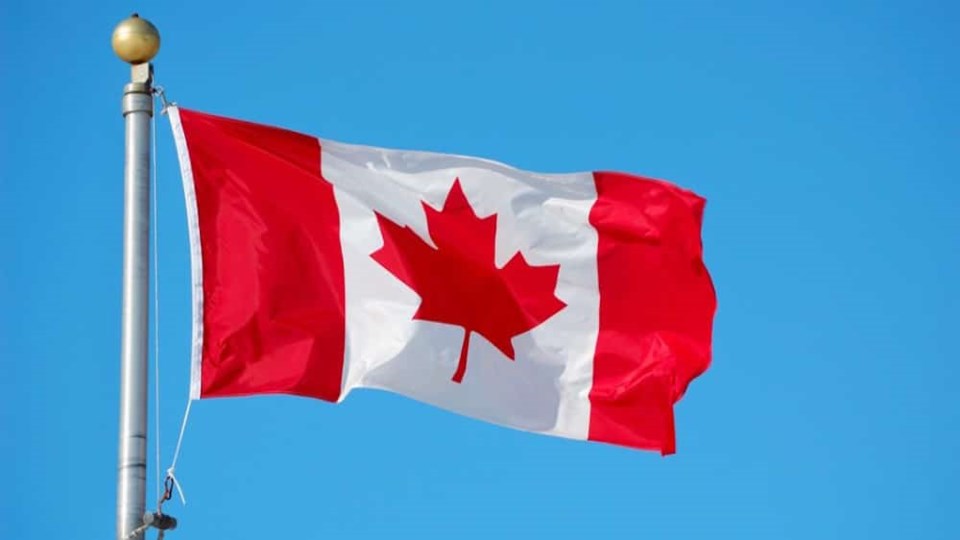The arrival of Canada Day presents an opportunity to reflect on the institutions and features that can elicit feelings of pride among Canadians.
Last year, when Research Co. and Glacier Media asked this question, there was near-total consensus about the flag, the Canadian Armed Forces and the domestic economy. Significantly fewer respondents felt great about the monarchy, Parliament and the justice system.
One year later, after the COVID-19 pandemic altered the way we live and communicate, the perceptions on some on these institutions and features went through noticeable shifts. The biggest drop is observed on the Canadian economy, which went from making 80% of Canadians proud in 2019 to only 53% in 2020. This is not shocking, as economic activity slowed dramatically during the lockdown and the unemployment rate is now in double digits.
Two other items that are near the top in 2020 underwent double-digit declines from 2019: the Canadian Armed Forces (74%, down 15 points) and the Canadian flag (82%, down 11 points).
While 64% of Canadians admit that hockey makes them proud, this number represents an eight-point drop from 2019. It has been difficult to get as worked up about the national sport as last year, with leagues – professional, youth and beer – being forced to cancel or postpone contests.
Three in four Canadians (75%, down two points) say the health care system elicits feelings of pride. Quebec is partly responsible for this result. The province has traditionally been more critical about this feature of Canadian life than all others, and this year is no exception. While only 61% of Quebecers are proud of health care, the proportion in all other provinces and regions fluctuates between 79% and 81%.
A similar proportion of Canadians (66%) say they are proud of the state of democracy in Canada, down four points in a year. We went through a divisive federal election late last year, as the regional breakdowns outline. The two areas that elected the fewest Liberal Party candidates in last year’s election to the House of Commons are less likely to be satisfied: Saskatchewan and Manitoba at 63% and Alberta at 58%.
Once again, the lowest-rated item on our list is the monarchy, dropping seven points to reach 40% across the country. Quebec pushes the national average down (31%), while British Columbia emerges as the most monarchist province in Canada (50%).
Unless a vaccine against COVID-19 is found relatively quickly, we will not have any official visits from Royal Family members that could sway these numbers. We found out earlier this year that indifference toward the monarchy has risen across the country, and the prospect of Prince Charles becoming king is not particularly thrilling for many Canadians.
Still, not all institutions and features of the country fared worse this year than in 2019. More than half of Canadians say they are proud of the Canadian justice system (55%, up 15 points) and Parliament (53%, up eight points).
In the case of the legislative branch, Canadians who voted for the governing Liberal Party are more likely to feel proud (72%) than those who cast ballots for the Conservative Party (42%) and the New Democratic Party (NDP) (41%). This is not unforeseen. When I had the chance to ask this question during Stephen Harper’s tenure in Ottawa, Tory voters were consistently euphoric while Grit supporters were dismayed.
The past few months have brought a new emphasis on inclusivity and cultural sensitivity, especially in light of discussions related to racism and fairness. Seven in 10 Canadians (71%, up five points) say they are proud of multiculturalism, while more than three in five feel the same way about Indigenous culture (62%, up six points) and bilingualism (61%, up six points).
As expected, Quebec boasts the highest level of pride for bilingualism (71%). On Indigenous culture, pride reaches 67% in both British Columbia and Ontario. Multiculturalism is regarded positively by 77% of Canadians aged 18 to 34, but falls slightly to 70% among those aged 35 to 54 and to 66% among those aged 55 and over.
The differences between men and women are only sizable on three topics. Women are more like to feel pride in the health care system and multiculturalism (79% and 75% respectively) than men (70% and 66% respectively). Men switch on the monarchy, where 45% of female respondents are proud, but only 35% of male respondents join them.
The past 12 months were far from perfect, and the challenges are shown in the way Canadians are re-evaluating their relationship with what is supposed to define us. Our economy is no longer one of the top items on the list. The increases in pride for multiculturalism, Indigenous culture and bilingualism suggest that the country is growing fonder of what can be accomplished with consideration and an open mind.
Mario Canseco is president of Research Co.
Results are based on an online study conducted from June 26 to June 28, 2019, among 1,000 adults in Canada. The data has been statistically weighted according to Canadian census figures for age, gender and region in Canada. The margin of error, which measures sample variability, is plus or minus 3.1 percentage points, 19 times out of 20.



